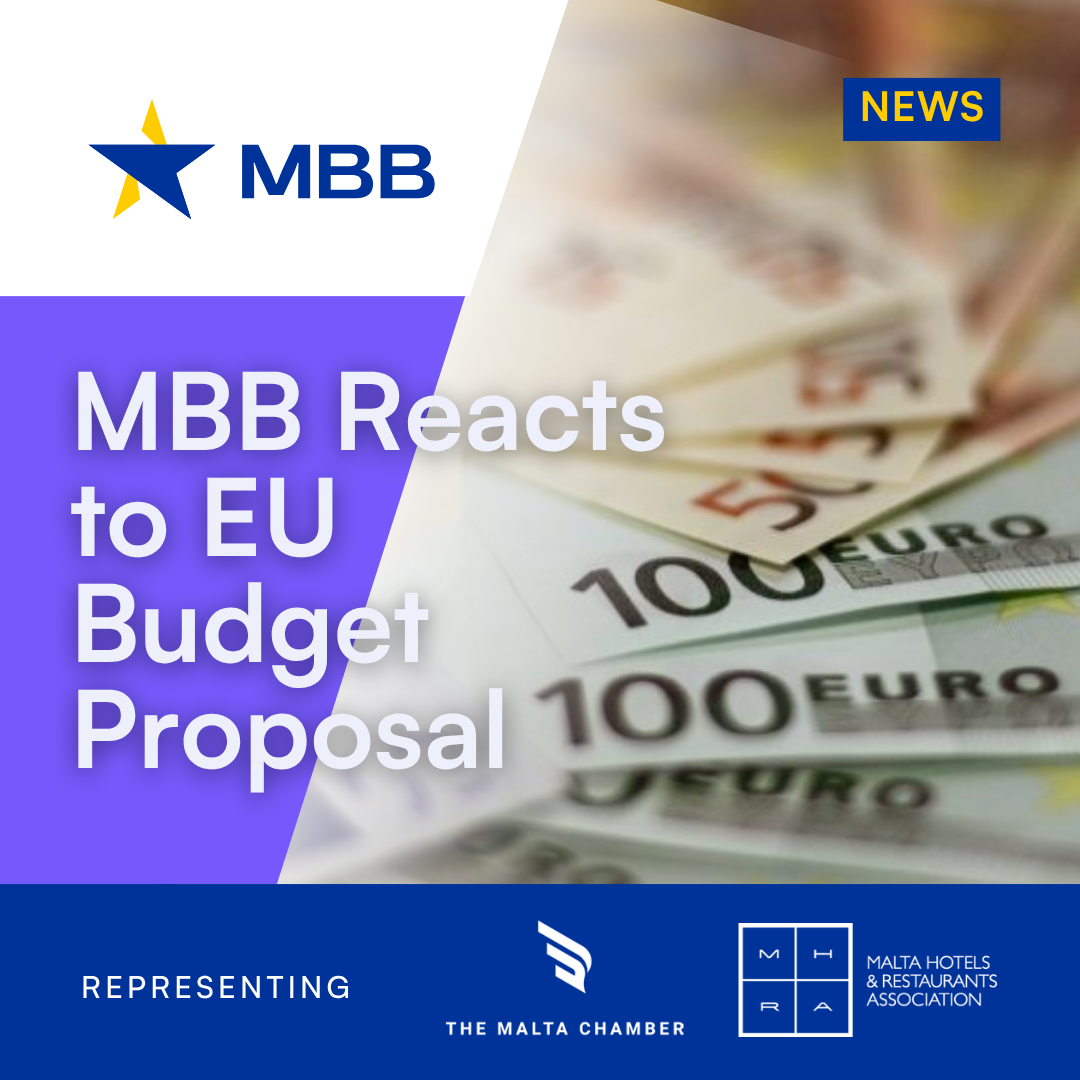MBB welcomes larger EU Budget, calls for direct business support and no corporate levy
- Latest News, MBB News
- Latest News, MBB News

17 July 2025 – The Malta Business Bureau (MBB) has welcomed the European Commission’s proposal for the Multiannual Financial Framework (MFF) for 2028–2034. The plan includes a bigger budget and continued investment in priorities such as Cohesion Policy, the European Social Fund, Erasmus+, the Connecting Europe Facility and the setting up of a new European Competitiveness Fund. 
MBB Head of EU Affairs Daniel Debono said:
“This proposal gives Maltese businesses an opportunity to benefit from EU funding that supports the green and digital transition, as well as national infrastructure that strengthens competitiveness. The challenge is to make sure these funds reach businesses on the ground.”
The MBB supports a performance-based approach for cohesion policy but insists on safeguards and flexibility. It also calls for social partners to be involved in programme design and for EU funding rules to be simpler and easier to manage.
However, the MBB expressed concern about a proposal to introduce a corporate levy on companies with revenues above €100 million.
“This risks creating a harmful precedent and could discourage investment at a time of economic uncertainty,” Mr Debono warned.
Additional Information on the Multi-Annual Financial Framework
The European Commission has put forward a long-term EU Budget for 2028-2034 worth almost €2 trillion, equal to 1.26% of the EU’s Gross National Income. When the ringfenced line for repaying the EU’s pandemic recovery borrowing (NextGenerationEU) is set aside, planned spending financed by national contributions comes in closer to 1.15% of GNI.
To make access simpler, the Commission wants to cut the current patchwork of roughly 52 funding programmes down to 16 under a more harmonised rulebook.
Spending would be organised under four broad headings: National and Regional Partnership Plans (bringing together cohesion, agriculture and related support); the European Competitiveness Fund; Global Europe (external action); and Administration.
In addition to traditional own resources (customs duties, a VATbased share and GNI contributions), the Commission proposes raising about €58 billion a year from five new streams: a call on revenues from the EU Emissions Trading System (ETS); a share of Carbon Border Adjustment Mechanism (CBAM) revenue; a charge linked to noncollected ewaste; an EUwide tobacco excise resource; and a corporate contribution (Corporate Resource for Europe) from companies with net annual turnover above €100 million.
The MFF can only take effect once all 27 EU member states agree unanimously in Council and the European Parliament gives its consent.
Share this article on socials:
25+ years of powering business excellence.
Related
More related news.
June 25, 2025
- Latest News
ENERGY INVESTMENT A RISING PRIORITY, BACKED BY STRONGER BUSINESS SUPPORT
June 4, 2025
- Business News, Latest News, MBB News
EU Startup and Scale-up Strategy is promising, but national competences must be respected
May 21, 2025
- Business News, Latest News, MBB News

